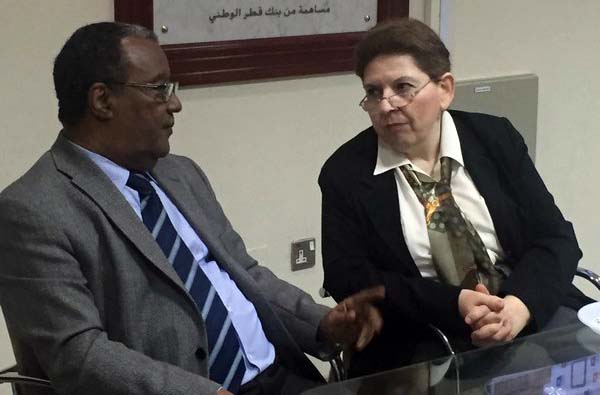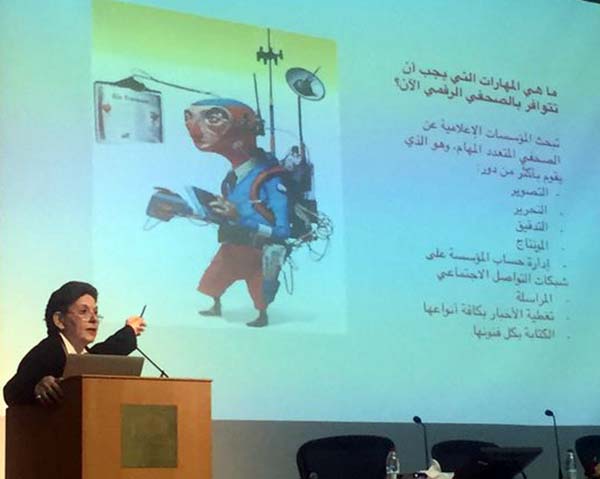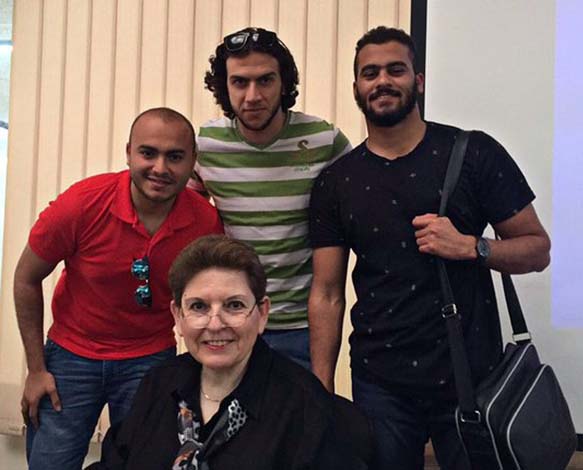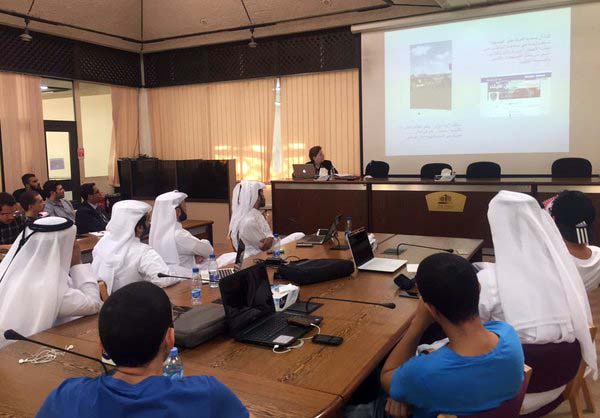News of a U.S. travel ban on citizens from mostly Muslim countries, revved-up populist rhetoric and anti-migrant/refugee campaigns snowballed as an international symposium tagged #SpreadNoHate offered an opposing scenario with recommendations to fight the venom.
“When one minority comes under attack, everyone’s freedom is at stake,” said Federica Mogherini to a symposium in Brussels in January 2017 hours before the travel ban took effect. “When people are discriminated (against) because they look different, it’s not only a violation of their human rights, but an attack against the very fabric of our societies.”

Federica Mogherini’s video message on hate speech
Mogherini, the High Representative of the Union for Foreign Affairs and Security Policy and Vice President of the European Commission, told conferees in a video message that the rise of hate speech was a global phenomenon requiring global awareness and local mobilization.
Media Unlimited director Magda Abu-Fadil moderated the first session and asked if media and information literacy could mitigate the damage of hate speech and if so, how?
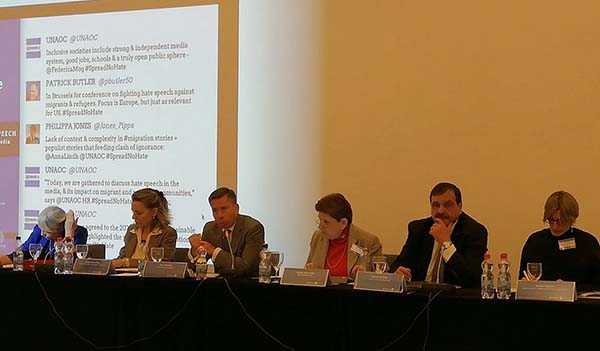
Magda Abu-Fadil (center) moderates #SpreadNoHate panel
She also stirred the debate pot by wondering whether governments, Internet service providers, and social media should control the message, if legacy media should be restrained in what they publish once offensive content has gone viral on social media, and, who else was to blame for fanning the flames of populism.
The event organized by the European Union External Action and United Nations Alliance of Civilizations (UNAOC) focused on hate speech against migrants and refugees in the media and grouped experts, journalists, academics, government officials and members of NGOs from across the globe.

Hate speech debated at Brussels symposium
“Hate speech is a violation of freedom of expression,” noted Cécile Kyenge, a member of the European Parliament and a former minister of integration in Italy, adding that that freedom was a pillar of all democratic societies.

MEP Cécile Kyenge (courtesy Virginie van Elbmt)
Kyenge, an ophthalmologist who was born in the Congo, has experienced racism and hate speech first hand. A former government minister called her an orangutan and detractors tossed bananas at her while on a podium to speak, according media reports.
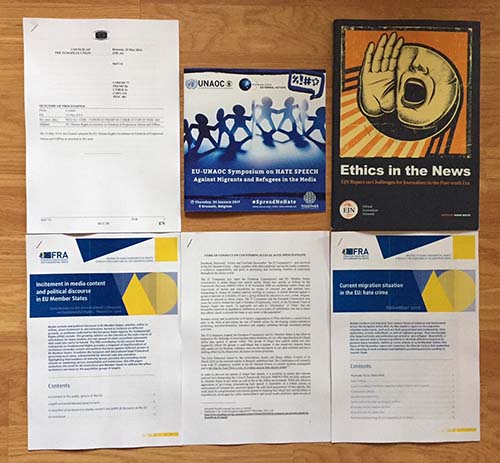
Spread No Hate publications
The UNAOC symposium was organized within the framework of its #SpreadNoHate initiative given the rising rhetoric of hate speech and incitement against migrants and refugees across Europe and elsewhere.
The daylong event’s themes were: media and the rise of populism; triggers and mechanisms of hate speech against migrants and refugees; improving the quality of media coverage about migrants and refugees; promoting ethical journalism; strengthening partnerships between media and civil society to promote balanced narratives; and providing recommendations on next steps to sustain the initiative.








